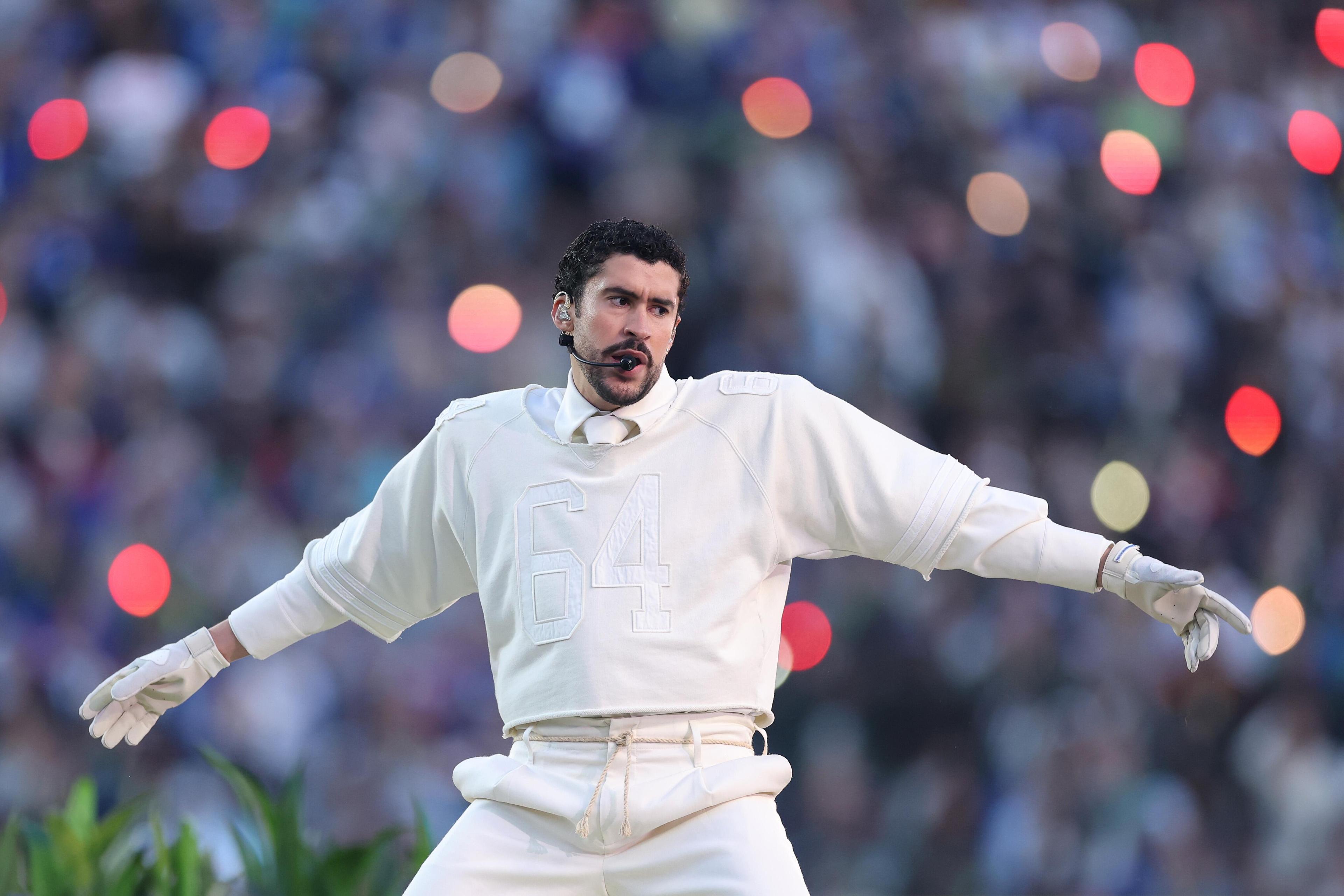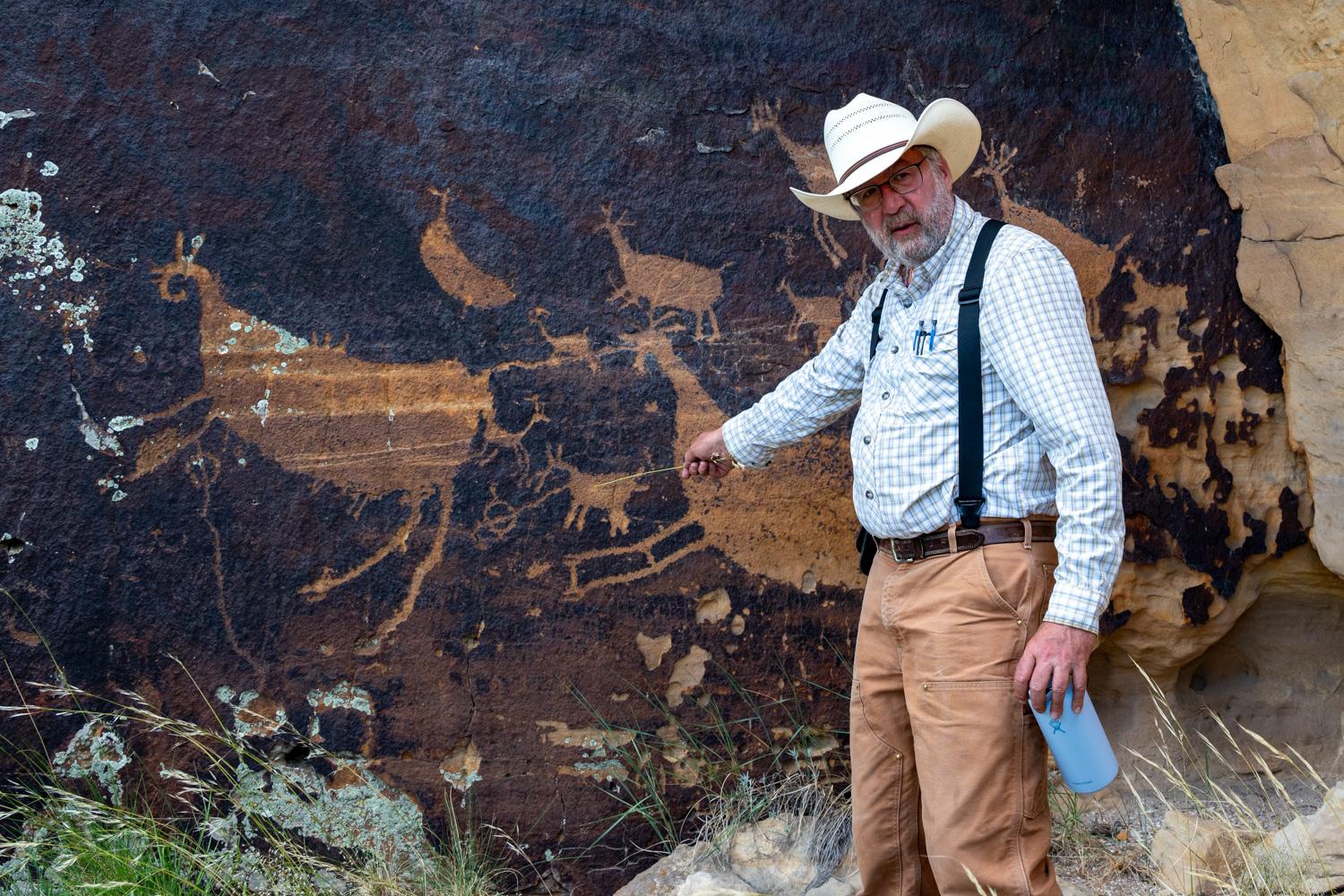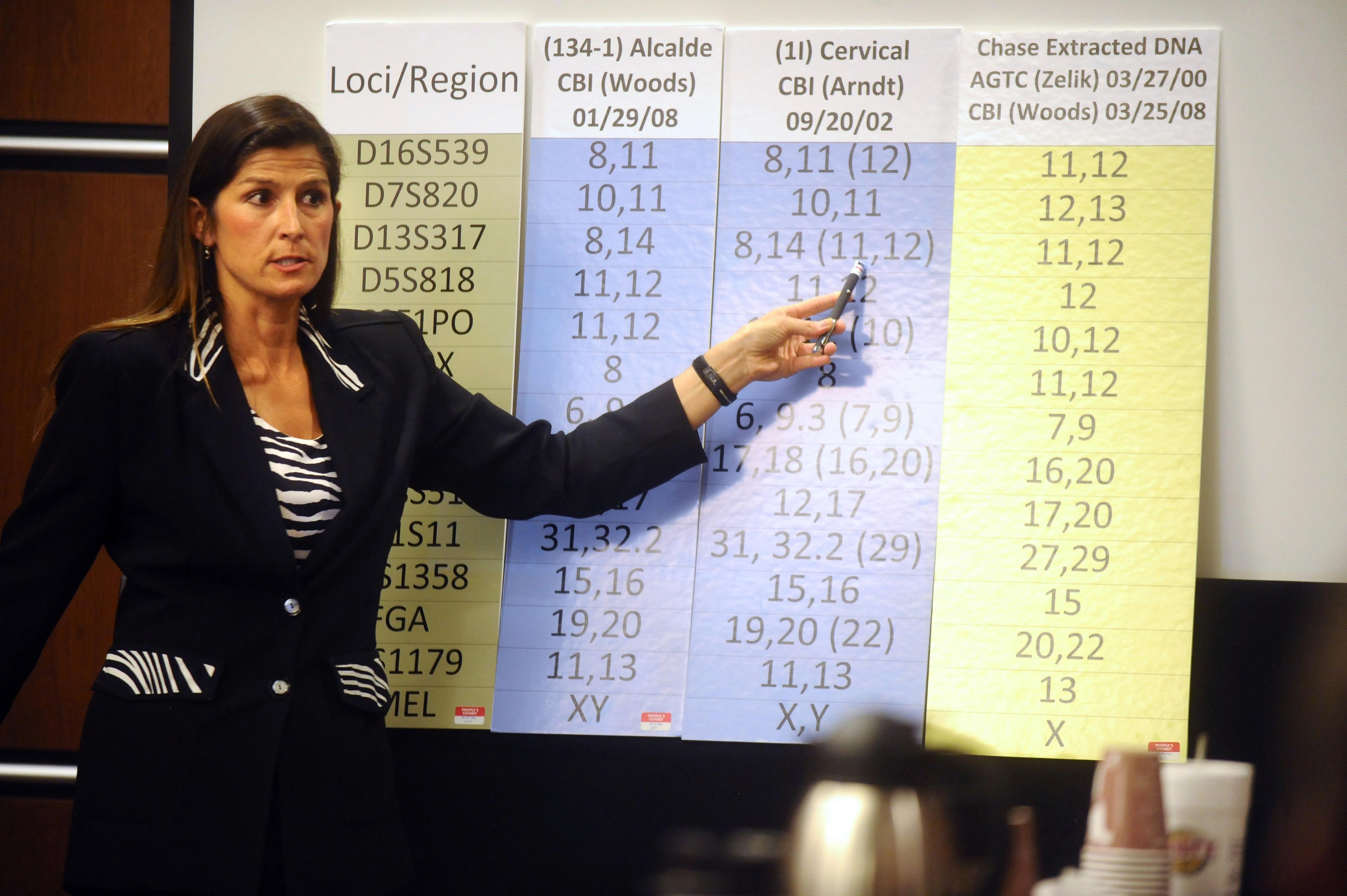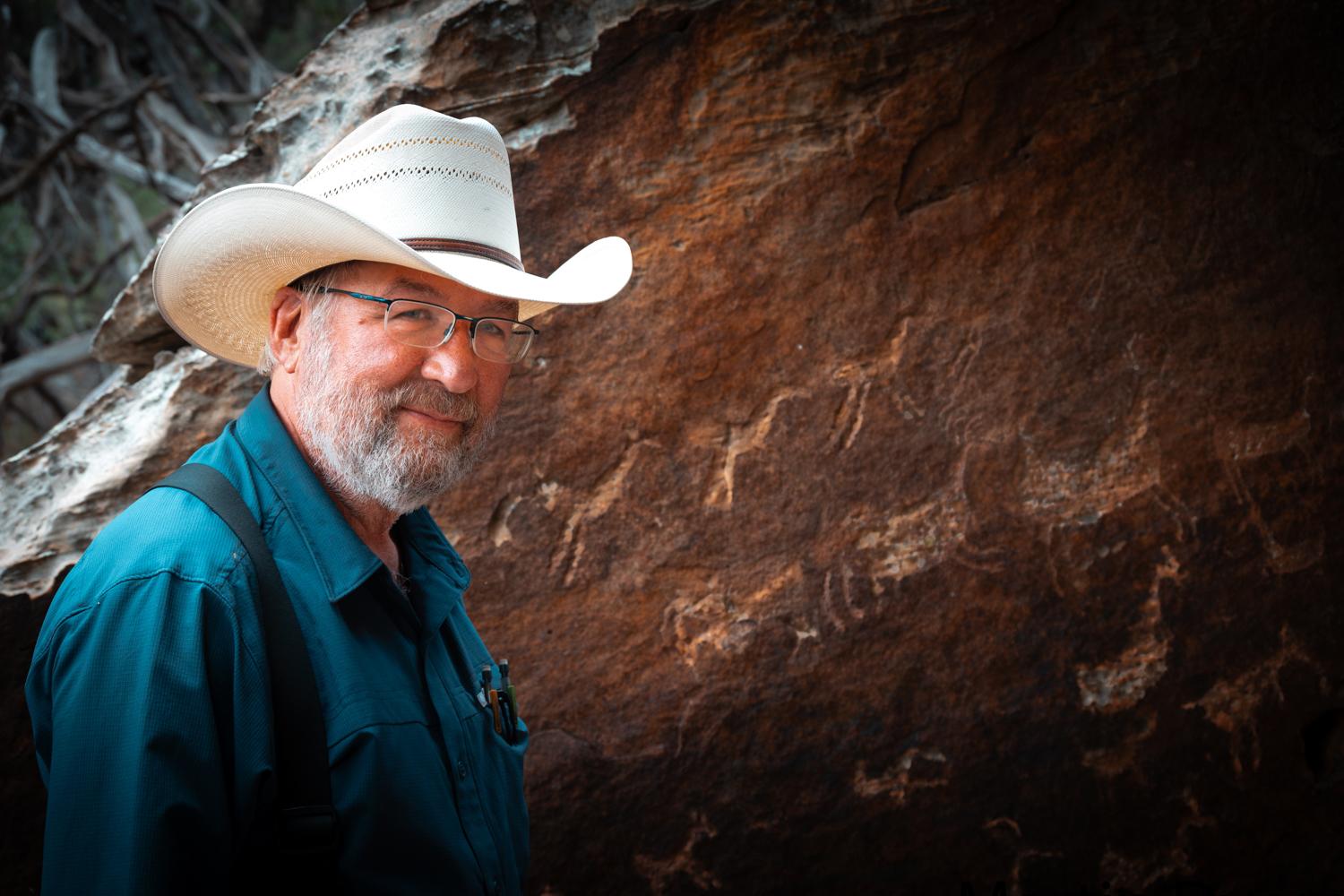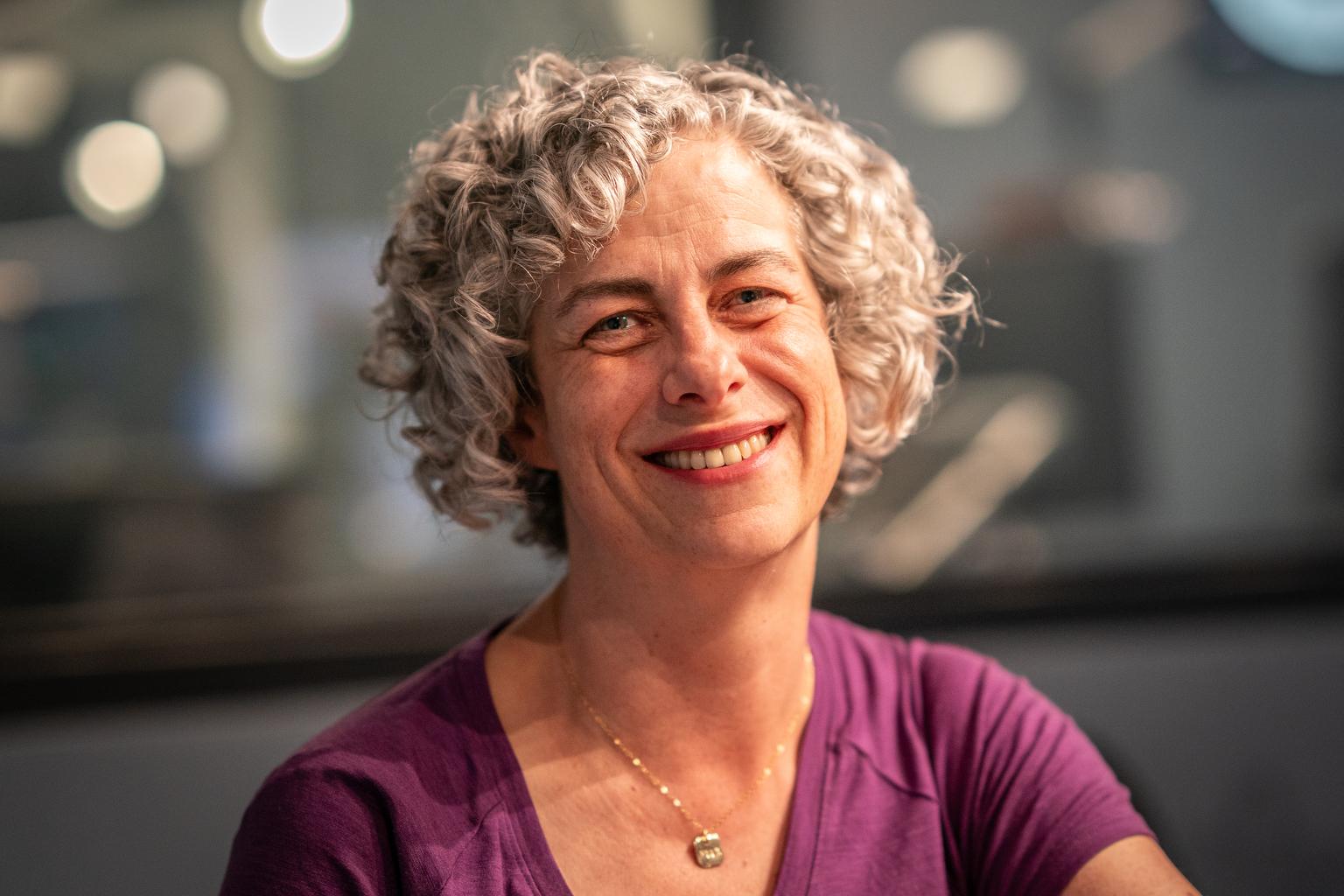
It should have been a moment of relief. On Sunday afternoon, June 1, before the start of a Jewish holiday, Rabbi Caryn Aviv hit “send” on the final draft of her forthcoming book, “Unlearning Jewish Anxiety: How to Live with More Joy and Less Suffering.” Then the phone rang with news of more suffering — in a community where serves.
A man, now charged with 118 state charges and a federal hate crime, had allegedly set peaceful demonstrators on fire as they raised awareness of hostages taken during Hamas’ attack on Israel on October 7, 2023.
“I was engaging in all the anxiety habits that I describe in the book,” Rabbi Aviv recalled. “I was trying to consume as much media as possible to find out what happened. I was contacting all my Boulder friends to see if they were OK and generally spinning out.”
Rabbi Aviv, Ph.D., formerly taught Israel/Palestine studies at the university level. Now she is rabbinic and program director of Judaism Your Way. While the group is not housed in a synagogue, it brings together a diversity of Jews in both Denver and Boulder.
The Rabbi sat down with Colorado Matters Host Ryan Warner to discuss the Boulder firebombing, Jewish anxiety, the war in Gaza, and the language people use to describe all of the above. For transparency’s sake, Aviv is Warner’s rabbi. CPR News editors allowed their interview to proceed on the condition that no relevant line of questioning was off the table.
The transcript below has been edited for length and clarity.
Ryan Warner: What was going through your mind at this confluence of events — submitting the final version of your book, called “Unlearning Jewish Anxiety,” then learning of this attack that could only seem to lead to anxiety?
Rabbi Caryn Aviv: I was engaging in all the anxiety habits that I describe in the book. I was trying to consume as much media as possible to find out what happened. I was contacting all my Boulder friends to see if they were okay, and generally spinning out. I was aware of what I was doing, so I tried to use the tools that I describe in my book: To pause and breathe, and listen to what I really needed at that moment.
Warner: Which was?
Aviv: Which was to put my phone away, put my laptop down, and go for a walk and hug some trees and just breathe. Because my nervous system got completely dysregulated, and I was shaking and scared.
Warner: Was someone you are close to injured?
Aviv: Yeah. 15 people were injured in the firebombing, and sadly, I know six of them. Boulder Jewish life is … it's a small town. The people who were involved in the walk that Sunday are people I've known for years. So it's upsetting. It's also a reminder of how we're all interconnected, and so what happens to some of us has a ripple effect, for positive or for negative.
Warner: It occurs to me that as you try to take care of yourself in that moment, you are also a figure people lean on, a rabbinic figure. That must come with some pressure and expectation, and even questions about “How much do I take care of myself versus someone else?”
Aviv: It is a question that all clergy ask themselves. After the October 7th Hamas attacks in Israel, I quickly realized two things: One, my pastoral counseling load is about to double, and in fact, it tripled. And two, that I needed to prioritize caring for myself so that I can be of service and support to my community. I do not want to cause harm to people or be unskillful or unboundaried in my ability to care for people because I'm not caring for myself.
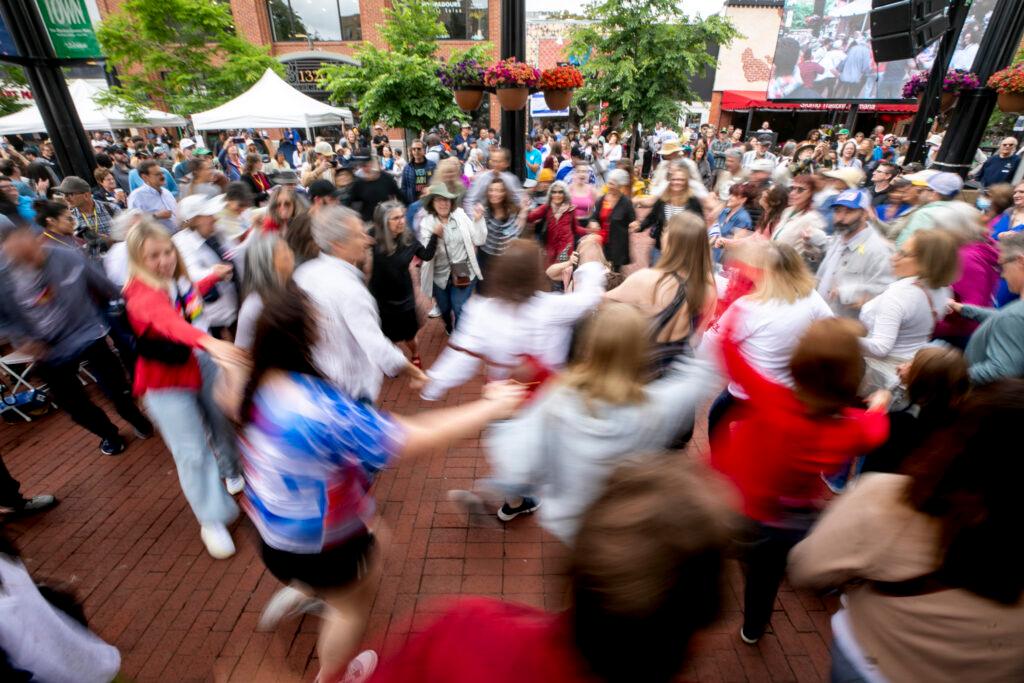
Warner: You say you wrote this new book, due out in February, "because I needed to change my own life."
Aviv: Yes. I'm coming out of the closet publicly. I am an anxious Jew.
Warner: I think, as a fellow Jew, I see anxiety almost as identity. Why the heck would you part with it, Rabbi?
Aviv: Because we suffer immeasurably from anxiety patterns and habits that do not help us move through life with equanimity and grace. I think part of our wonderful, rich history of Jewish humor is because of our anxiety that we are not safe in the world, which many Jewish people feel today. A lot of Jewish women's humor and gay Jewish humor comes from this sense of “I'm not worthy of care and respect.”
And a lot of Jewish people wonder in moments like the one that we're living through, “Are we really accepted as American? Do we belong here? Is it time to dig out my passport and pack my suitcase and flee?”
I have tried to reassure people that were not living in Germany in 1938, and sometimes I believe what I'm saying, and sometimes I don't. I feel scared, and sometimes I secretly Google how to immigrate to Canada. So I wrote this book because I wanted to deal with my own anxiety, and I realized in this work that almost all the Jewish people I know in the United States have some of these patterns that I wrote about. I came to realize there are cultural roots to the anxiety we experience.
Warner: You talk about them as being inherited.
Aviv: Yes. Inherited ancestral trauma. I draw a lot on the work of my teacher and mentor in Boulder, Rabbi Tirza Firestone. She wrote an amazing book called “Wounds into Wisdom,” which is about healing inherited intergenerational Jewish trauma. But I also realized that some of our habits expose us to vicarious trauma, which is when bad things happen to Jewish people in other parts of the world, we voraciously consume media, we check on people, we play images over and over and activate all of the symptoms of post-traumatic stress disorder.
Warner: Gosh, it sure sounds like you after the Boulder firebombing.
Aviv: Hypervigilance, hyperarousal, numbness and fear.
Warner: Any number of people will hear this and say, “That sounds familiar, and I'm not Jewish.” What is Jewish about this?
Aviv: I think there are certain things in Jewish culture, how we celebrate holidays, how we remember our past, what we learn about the Holocaust, a lot of Jewish tourism to Europe, and Poland specifically, is touching on that inherited ancestral trauma.
I talk about how Jewish history and culture is a double helix. Yes, there is trauma in our history and our culture, and we remember the exodus from slavery in Egypt on Passover, and we have Tisha B'av, which is a holiday about the destruction of the two temples in Jerusalem. But there's also resilience in our narratives and our history, and that's the other strand of a double helix of DNA. Sometimes we overemphasize the trauma aspect of our culture and history at the expense of recognizing that we can offer ourselves tools for resilience.
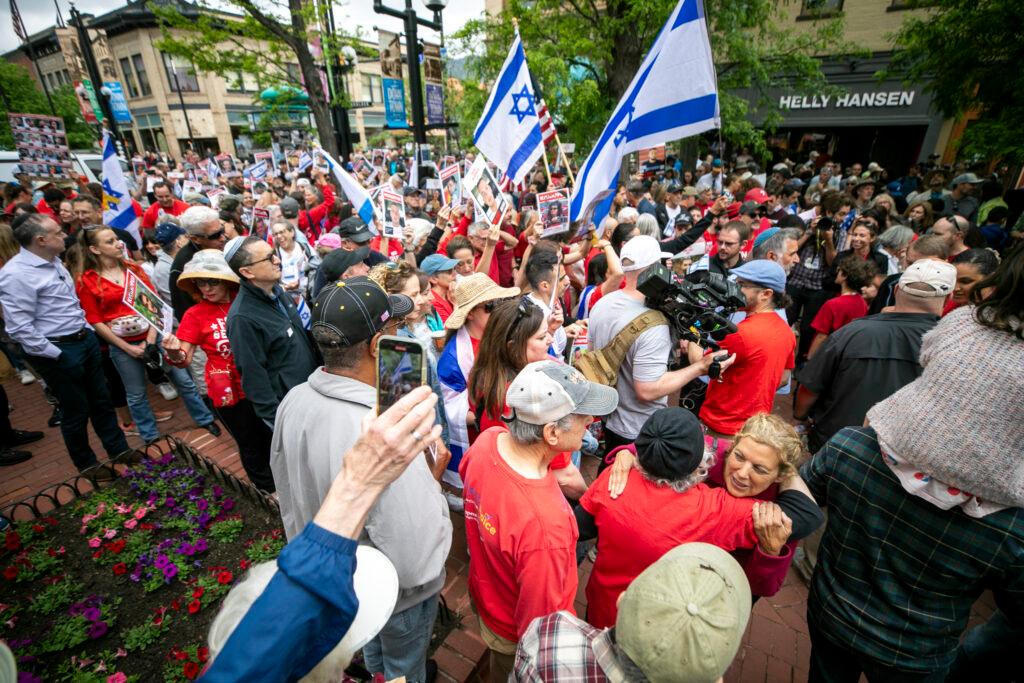
Warner: I think of the quip that most Jewish holidays are, “They tried to kill us. We survived. Let's eat.”
Aviv: Yes.
Warner: I was able to read the preface and introduction of your new book, “Unlearning Jewish Anxiety.” Throughout, you refer to the experience of living in a society with “deeply embedded anti-Jewish contempt,” and I thought, “Why isn't the Rabbi using the term antisemitism?”
Aviv: It's such a great question. The term antisemitism was coined in the late 19th century by a German Jew-hater named Wilhelm Marr, who published a screed imagining victory over Jewish civilization. He was an early proponent of what later became known as racial eugenics theory. And those ideas were adopted by the Third Reich of the Nazi regime. So once I started doing a little historical research into this guy, I thought, “Why are we using something coined by someone who hated our people?” I don't use the word “Semite” to describe who I am. I don't know any Jewish person who uses the word “Semite.”
Warner: Can you talk about the term “Zionist?”
Aviv: The word “Zion” in Hebrew is “Tzion.” It refers to the land of Israel that's described in sacred Jewish texts dating back 3,000 years — that longing to return to Zion. If you fast-forward to the mid- and late-19th century, paradoxically at exactly the same time that Wilhelm Marr was penning his screeds about eliminating Jews from German society, there was a group called Hibbat Tsiyon, which meant lovers of Zion. They were some of the first Jews in Europe to propose the idea that, maybe, it's time for us to return to our ancestral homeland, which at the time was controlled by the Ottoman Empire.
And fast-forward about 30 years later, an Austrian Viennese journalist, Theodor Herzl, was witnessing the French trial of a Jewish officer in the French Army named (Alfred) Louis Dreyfus, and got concerned about the safety of Jews in Europe. Herzl became convinced that it was time to create a new political movement, which is called Zionism, encouraging Jews to go back to their ancestral homeland to create a nation-state of their own.
In fact, there's a University of Denver professor here, Adam Rovner, who's written about failed Zionist utopias in other places. In Uganda. In Argentina. There was a Soviet homeland for Jews called Birobidzhan. So all these ideas of creating a safe place for Jews where people would not have to live with the fear or the uncertainty of anti-Jewish contempt. Where could we have that place? Just like French people can live in France and English people can live in England.
There have always been many Zionisms: cultural zionism, political zionism. Ideas about how to build a homeland or a nation-state that's based on agriculture. Many different competing visions and political programs for zionism have always existed. So the discourse today around Zionism, anti-Zionism is really puzzling to me as a student of the history because people frame it as a settler-colonial project, which I personally don't think is the right frame. The British controlled Palestine after the Ottoman Empire crumbled and granted legitimacy to Jewish yearnings to return to the homeland with something called the Balfour Declaration. Scholars have disagreements about this today.
Warner: What framing do you gravitate towards then?
Aviv: It depends on the day. It depends on what's happening in the news. I should also say that I have a really complex, complicated love, ambivalent love with the state of Israel, depending on who's controlling the government. I've been supportive and not so supportive. I also should say that I lived in Israel for almost two years to write my Ph.D. dissertation. So my relationship with Israel as a place, and with people who live in Israel, both Israeli Jews across the religious and secular spectrum, and Palestinians who have Israeli citizenship, it's a complicated place that I love.
It's also a very troubled place. Israelis themselves disagree profoundly about how their state should function and who should have rights and fewer rights, and what to do about the moral implications of an occupation that began in 1967 after the Six-Day War when Israel captured the West Bank, and then what was the Gaza Strip and the Sinai Peninsula and the Golan Heights.
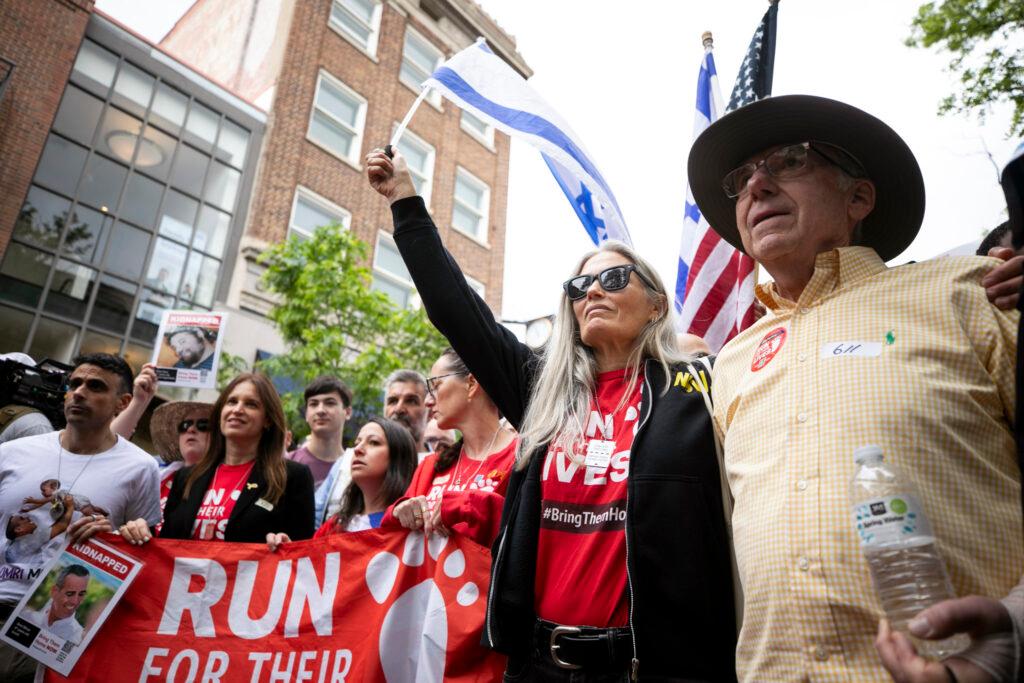
Warner: Some listeners plead with us to make a distinction between antisemitism and anti-Zionism. They say, “I should be able to protest what's happening in Gaza and not be labeled antisemitic.”
Aviv: Yeah. I think many Israelis, Jewish and Palestinian, Christians and Muslims, are also wondering what's happening to their country [Israel] and their government. It's OK to criticize and demonstrate against government policy, both in the United States and in Israel. That does not make someone anti-Jewish.
When you're calling for all Zionists to be killed — that's pretty dehumanizing language. So it's a language issue.
It's also about how people understand the use and abuse of power. The Jewish community in the United States is bitterly divided on the question of what's happening with this war in Gaza. Most Jewish people that I know would say, “Absolutely. We want the hostages to return home safe and sound. They've been hostages for over 600 days.” And many Jews I know would also say, “I want this war to end so desperately because it's unclear what the purpose is anymore.”
And because so many thousands and thousands of people have died, what are the moral implications for us in the United States, as Jews, in this war and this suffering?
A journalist named Peter Beinart just published a book called “Being Jewish After the Destruction of Gaza: A Reckoning.” It raises many of the questions I'm talking about for which I do not have answers. I just don't. I have a lot of anguish and deep grief and sadness, and also a feeling of powerlessness and fear and uncertainty.
Warner: Does Israeli foreign policy make Jews outside of Israel less safe?
Aviv: I don't know how to answer that because I can't prove any kind of causal relationship.
Warner: Can you answer it for yourself?
Aviv: I feel less safe as a Jew in the United States right now, given our polarization in this country, which I think social media amplifies, and given the blurriness of the line between anti-Jewish contempt and anti-Israel or anti-Zionist sentiment because of what we're seeing in Gaza. It's super complex, and it's hard for me to disentangle because it just feels so scary and uncertain to be Jewish living through these times.
Right now, I'm wearing my kippah, my yarmulke, and sometimes I wear it in public because I want to be out and loud and proud as a Jew. And sometimes I don't wear it because I worry about my own safety. And whether that's real or not, it's a feeling that's engendered by the times we're living through. So I can't say there's a direct correlation, but certainly these times are so troubling that all of people's antagonism and anger is really amplified, and people need a target, and people need an outlet for that. And sometimes, unfortunately, Jews in the United States are seen as easy targets for that rage.

